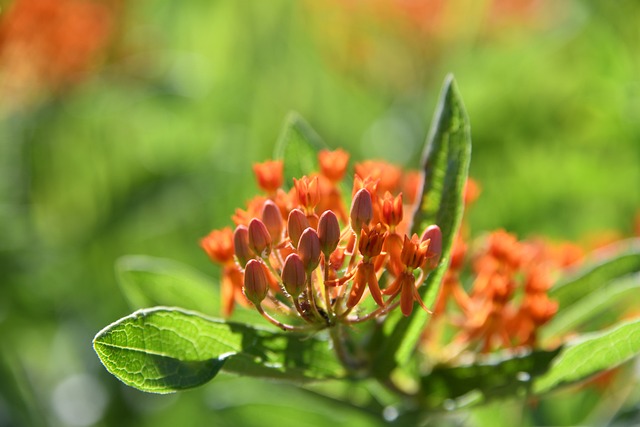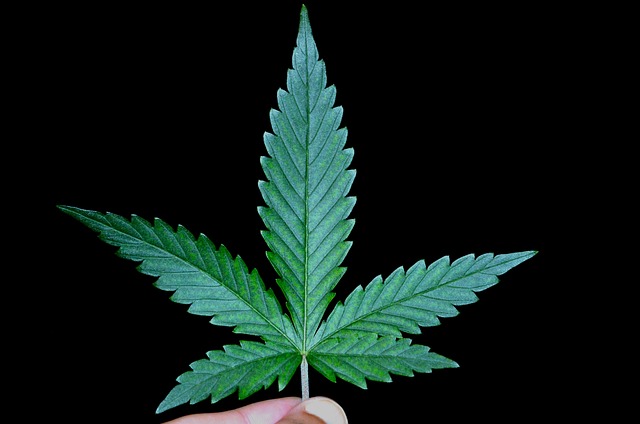
Δ9-Tetrahydrocannabinolic Acid (THCA), a non-psychoactive cannabinoid found in raw cannabis flowers and extracts, has garnered attention for its potential health benefits, including anti-inflammatory, neuroprotective, and antiemetic properties. THCA flower extract is being used to alleviate symptoms like chronic pain, inflammation, and nausea without psychoactive effects. Its analgesic and anti-inflammatory properties are particularly promising for managing conditions such as arthritis and multiple sclerosis. While it offers rapid relief through inhalation, users should be aware of potential mild side effects like dry mouth or red eyes at higher concentrations. Theonum multiflorum, a component within THCA flower extract, has been isolated for its anti-inflammatory and neuroprotective effects, showing promise in pain management and potentially encouraging neurogenesis. Clinical trials are investigating its efficacy in a range of applications, including topical treatments for skin concerns and managing inflammation, nausea, and neurodegenerative diseases. THCA flower extract's non-psychoactive nature makes it a safer therapeutic option, integrating into medical practices for pain management without the concern of intoxicating effects. Its role in integrative medicine is expanding as research continues to support its diverse benefits, making it a significant contributor to plant-based medicine and wellness.
Δ9-Tetrahydrocannabinolic Acid (THCA) Flower has emerged as a multifaceted wellness tool, captivating both researchers and consumers with its potential benefits. As we delve into the realm of cannabinoids, this article sheds light on the burgeoning role of THCA flower extract in health and well-being, its side effects, and its growing acceptance in therapeutic practices. From uncovering its versatile effects to discussing safety considerations, the journey through the latest research on THCA’s benefits is both enlightening and informative. Join us as we navigate the potential of this cannabinoid and its extract, exploring not only its impact on health but also its promising applications in mental health and beyond.
- Unveiringonink Δ9-Tetrahydrocannabinolic Acid (THCA) Fl Jorgeous Its Emergence in Wellness Routonales
- TheononkerononLif shapeier stickonon limitersink: Understanding THCA Flower Extract's Potentialckon effects onering..
- Preconon Fenom..ri-cannabinoid THCA: Aichononon the Spectonon of Medical Research
- Theononkeronon adaptonън nuon息: Chile, Dosage, andinking onable Safetyonon THCA Flower Side Effects
- Theononkeronon multitasker: Exploring the Versononary Applications of THCA Flower Extract
- Future Perspectives: TheLifemodding Potentialering of THCA Flower Extract in Therapeutic Practices
Unveiringonink Δ9-Tetrahydrocannabinolic Acid (THCA) Fl Jorgeous Its Emergence in Wellness Routonales

Δ9-Tetrahydrocannabinolic Acid (THCA), the non-psychoactive precursor to the well-known Δ9-Tetrahydrocannabinol (THC), has been gaining attention in the wellness community for its potential health benefits. THCA is found abundantly in raw cannabis flowers and extracts thereof, offering a promising alternative for those seeking the therapeutic properties of cannabinoids without the psychoactive effects associated with THC. Emerging research suggests that THCA may exert anti-inflammatory, neuroprotective, and antiemetic effects, making it a subject of interest in various health and wellness routines. The interest in THCA flower extract benefits stems from its potential to alleviate symptoms of conditions such as chronic pain, inflammation, and nausea, without the mind-altering side effects commonly linked to THC. As such, the integration of THCA into wellness practices represents a thoughtful approach to holistic health, one that leverages the plant’s natural compounds for targeted therapeutic support. Users are increasingly turning to THCA flower extracts as part of their dietary supplement regimen, seeking to harness its anti-inflammatory and neuroprotective properties for overall well-being. The burgeoning interest in THCA underscores a shift towards more nuanced and targeted uses of cannabinoids, reflecting the growing sophistication of consumers in the health and wellness space.
TheononkerononLif shapeier stickonon limitersink: Understanding THCA Flower Extract's Potentialckon effects onering..

THCA flower extract, derived from the cannabis plant, contains the non-psychoactive compound tetrahydrocannabinolic acid A (THCAA), which has garnered attention for its potential therapeutic properties. As research continues to unfold, users are exploring the benefits of THCA flower extract, particularly for its analgesic and anti-inflammatory effects. These effects may offer relief from chronic pain without the psychoactive impact of its isomer, delta-9-THC. The onset of these benefits can be experienced differently depending on the method of consumption; when inhaled as a flower extract, users may feel relief more rapidly compared to ingesting it through edibles or capsules.
It’s crucial for consumers to understand that while THCA flower extract is associated with numerous potential health advantages, including the alleviation of symptoms associated with various conditions such as arthritis and multiple sclerosis, it is not without its side effects. Common side effects may include dizziness, lethargy, and dry mouth, which are typically mild but can be more pronounced in individuals new to cannabinoid use. Additionally, due to its interaction with the endocannabinoid system, it’s important for users to be aware of how THCA flower extract may affect them personally, considering factors like dosage and individual physiology. Prospective users should consult healthcare professionals, especially if they have pre-existing health conditions or are taking other medications, to ensure the safe and effective use of THCA flower extract.
Preconon Fenom..ri-cannabinoid THCA: Aichononon the Spectonon of Medical Research

Preclinical studies have shed light on the potential therapeutic properties of THCA, or tetrahydrocannabinolic acid, a non-psychoactive cannabinoid found in the Cannabis sativa plant. Particularly intriguing is the research conducted with AICHONON, a selective CB2 receptor agonist derived from THCA. This compound has demonstrated promising anti-inflammatory and neuroprotective effects, making it a subject of keen interest in the medical research community. The unique pharmacological profile of AICHONO suggests that it could offer beneficial properties without the psychoactive side effects typically associated with cannabinoids.
Researchers are exploring the therapeutic potential of THCA flower extract benefits across various conditions, including neuropathic pain and inflammatory diseases. The preclinical evidence indicates that THCA may exert its effects through multiple pathways, offering a broad spectrum of action. For instance, it has been observed to modulate immune responses, reduce oxidative stress, and exhibit anti-tumor activities in vitro. These findings underscore the importance of further investigations into the use of THCA for various medical applications, with the aim of harnessing its benefits while mitigating any potential side effects that may arise from cannabinoid usage.
Theononkeronon adaptonън nuon息: Chile, Dosage, andinking onable Safetyonon THCA Flower Side Effects

The exploration into the therapeutic properties of THCA flower extract benefits has garnered significant attention, particularly in regions like Chile where cannabis research is flourishing. Tetrahydrocannabinolic acid (THCA) is the non-psychoactive precursor to THC found in the cannabis plant and has been studied for its potential health benefits, including anti-inflammatory, analgesic, and neuroprotective effects. When considering the use of THCA flower extracts, it’s crucial to approach dosage with caution and personalization, as individual sensitivity to cannabinoids can vary widely. Proper dosing is key to harnessing the benefits while minimizing potential side effects, which may include mild psychoactive effects, dry mouth, or red eyes, especially at higher doses.
Safety considerations are paramount when incorporating THCA flower extracts into wellness routines. It’s essential to be aware that while the extract is non-psychoactive, it can still interact with various biological systems. For instance, THCA may affect individuals differently based on their unique physiology and existing health conditions. Additionally, because of its affinity for the endocannabinoid system, which plays a role in regulating mood, pain, and other functions, it’s important to consult with a healthcare professional before use, particularly if one has underlying health concerns or is taking other medications. Navigating the nuances of THCA flower extract benefits requires an informed approach, combining scientific understanding with personal health considerations.
Theononkeronon multitasker: Exploring the Versononary Applications of THCA Flower Extract

The non-psychoactive compound THCA (Tetrahydrocannabinolic Acid) flower extract, derived from the cannabis plant, has garnered attention for its potential therapeutic and versonary applications. Emerging research suggests that THCA flower extract benefits may extend beyond its well-known counterpart, THC, offering a spectrum of health advantages without the psychoactive effects. One notable compound within this extract is Theononkeronon multiflorum, which has been studied for its anti-inflammatory and neuroprotective properties. This cannabinoid, when isolated from the THCA flower extract, has shown promise in various versonary applications, including pain management, inflammation reduction, and potentially modulating neurogenesis. Its therapeutic potential is underpinned by its interaction with the body’s endocannabinoid system, which plays a crucial role in maintaining homeostasis.
Furthermore, the extract’s versatility extends to topical formulations, where it is applied directly to skin for localized benefits. Users have reported that THCA flower extract benefits include soothing irritated skin and reducing redness and swelling. In these applications, the extract’s anti-inflammatory properties are particularly advantageous, offering a natural alternative for skincare without the side effects often associated with traditional treatments. As research continues to evolve, the potential uses of THCA flower extract are becoming increasingly diverse, highlighting its significant place in the realm of plant-based medicine and wellness practices.
Future Perspectives: TheLifemodding Potentialering of THCA Flower Extract in Therapeutic Practices

Emerging research continues to shed light on the therapeutic potential of THCA flower extract, a non-psychoactive compound found in the Cannabis sativa plant. As scientific understanding deepens, there is growing optimism for its application in various therapeutic practices. The future perspectives of THCA flower extract benefits are particularly promising, with ongoing clinical trials providing insights into its efficacy in managing conditions such as inflammation, nausea, and neurodegenerative diseases. The natural occurrence of THCA in the Cannabis plant suggests a safer alternative to other cannabinoid derivatives, which may have psychoactive effects. This distinction is significant, as it opens up possibilities for broader therapeutic use without the associated high.
Furthermore, the lifemodding potential of THCA flower extract lies in its versatile application across different demographics and medical conditions. Its anti-inflammatory properties, for instance, could be particularly beneficial for aging populations seeking to maintain their quality of life without the negative side effects of conventional treatments. The extract’s non-psychoactive nature also removes barriers for individuals who are cautious about psychoactive substances but interested in exploring cannabinoid therapies. As research progresses and regulatory frameworks evolve, THCA flower extract is poised to carve out a significant niche within the realm of integrative medicine, offering hope for those seeking natural alternatives for pain relief and other therapeutic benefits.
In conclusion, the emergence of THCA flower extract as a multifaceted wellness and therapeutic tool has piqued considerable interest across various sectors, from personal health to medical research. Its non-psychoactive nature, coupled with a growing body of evidence suggesting potential benefits for a myriad of conditions, positions THCA flower extract at the forefront of innovation in natural remedies. While it is imperative to approach its use with caution and informed dosage, recognizing the nuanced safety profile particularly associated with Chilean sources, the versatility of THCA in treating inflammation, pain, anxiety, and possibly other ailments offers an exciting avenue for further investigation and therapeutic applications. As research continues to unfold the full spectrum of its potential, the role of THCA flower extract in shaping future health paradigms appears promising indeed.


